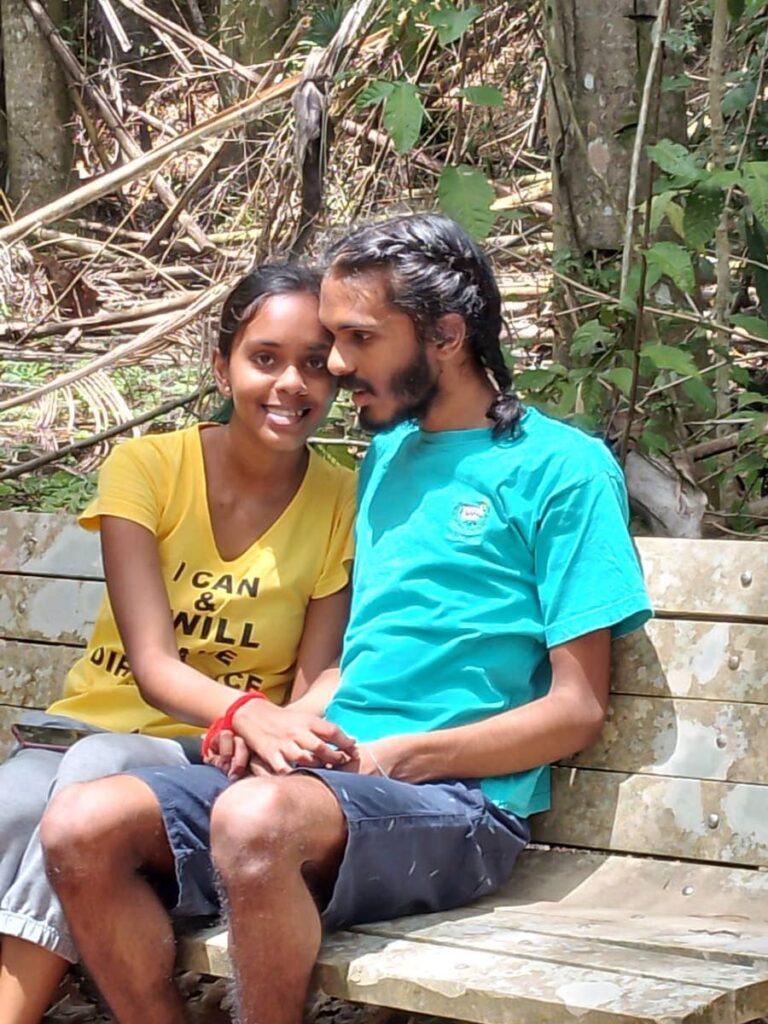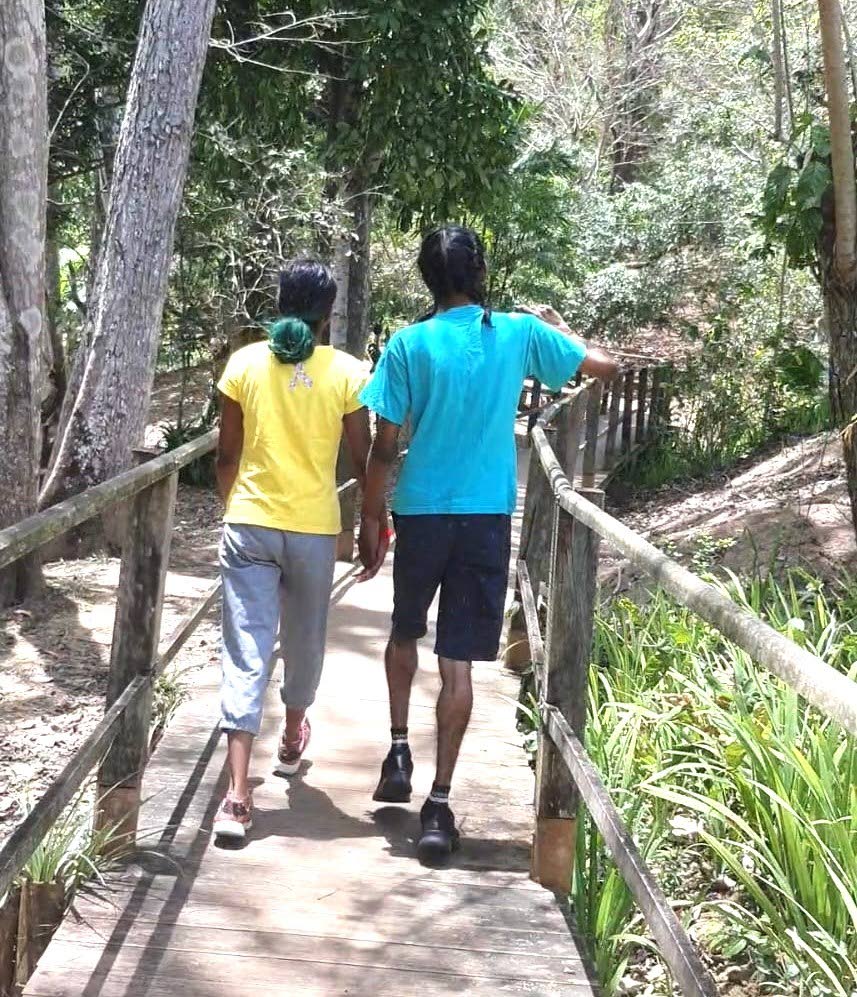The special sibling relationship

DR RADICA MAHASE
This week I am sharing an article written by my niece Maya. She writes about her experiences as an autism sibling. Let’s recognise and celebrate that unique bond that develops between people with special needs and their siblings.
“I am Maya Nanan and I am 20 years old. I am a 2020 Diana Award Recipient and a 2022 Queen’s Commonwealth Trust Grant Recipient. Most importantly, I am a proud autism sister. None of those accomplishments/titles would have been attained without my little brother, Rahul. Rahul is one year younger than me and he has autism. We grew up doing everything together and we are still very close and we go on adventures, just us alone!
Rahul's personality has evolved as he grew older, and I have seen him progress with the therapy that he received over the years. He has always been a quiet child and always kept to himself growing up – he is also non-verbal. Whilst he may not have a full conversation with me, he can sing the entire nursery rhyme or narrate the entire Sesame Street videos. As he gets older he has been trying new foods and he loves visiting places. Did I say we do everything together? Right now, we’re trying to see whose hair will grow longer by the end of the year!
One of my biggest challenges growing up, was people not being aware of autism, and therefore a lack of understanding and accepting. I'd remember going to the malls, parks and any public venue actually, and Rahul would sing at the top of his voice or stim, and people would just stare at him. When people learnt that he has autism we would often get, “I would have never guessed something was wrong with him” or “but he looks so normal” and I remember thinking, autism doesn't have a look, and what does normal look like? Regardless, we'd still take him out, and we'd still expose him to the world that we live in – even though our world can be so mean and cruel.
Sometimes I feel like we don't deserve these innocent, special angels who were sent here to be among us and remind us of the simple things in life and teach us to be grateful.
Social stigma still exists in today's society, but now, people are quick to judge and post on social media. Rahul isn't a little boy anymore who sings at the top of his lungs in public – he is an 18-year-old who does it! So people look at him differently. Very few times people would come up and start a conversation and say they know someone like him, and then we begin an autism discussion. Sometimes people would come up to us and say they saw us on television or in the newspaper. Most of the time though, when Rahul and I are out in public, people are usually very nice and accommodating. I think that people are more aware of autism now – they have at least heard the word and have an idea about it, which is progress.
My brother has taught me to be loving and caring, to be patient and to be unbothered and carefree. He has the biggest heart in the entire world!! He is such a sweet, loving, happy child, and he radiates that energy to those around him. He also looks out for me in so many ways, in his way. When I am sick, every five minutes he will walk in and out to check on me; he also doesn't allow anyone to yell or raise their voice at me – he gets upset and ‘quarrels’ with them.
Rahul has taught me that no matter how many times people stare or make inappropriate remarks, that’s just the way people are, they will always have something to say, whether it's good or bad, and it's up to us to decide whether we take it personally or not, and I've learnt that there is a huge amount of freedom that comes to you when you don't take anything personally.

Thankfully, I've had family members, friends, teachers and other people who are all understanding and open-minded. In my situation, if 12-year-old me did not decide to start the youth arm of my aunt's NGO, then my life would have been different. I would not be the person that I am today – brave, my brother's voice. If I did not have this support from the start, or the people I met along the way, I may have been in an entirely different situation where I would feel alone, unsure and maybe insecure. I am thankful to not be in that position, and I am a full campaigner of embracing and celebrating differences.
When siblings do not get enough attention from their parents/family, as the attention and focus is on the autistic child, they may feel neglected, which can lead to jealousy. Some may have a heavy feeling in their head and heart that their sibling is different and because of peer pressure or social stigma, may believe that different is not good.
A special-needs sibling will want to be treated as any regular sibling and not laughed at or feel judged or pitied upon. Also, not being able to understand their autistic siblings or to find common ground with them can be a major challenge, especially when there is an age gap between them. Siblings have to keep exploring and finding new ways to bridge that gap. You have to think outside the box to come up with new ideas to try. Every so often you may not like something, but your autistic sibling might, in my case, Rahul loves to eat his veggies, but I don't, so thankfully he helps me get them off my plate.
To other special-needs sibling – continue being the remarkable human being that you are! Learn to embrace differences and welcome changes. Teach yourself to be more understanding, accepting and patient. You must truly learn to love yourself and your autistic/special-needs sibling, and then you'll be invincible… kind of like a dynamic duo!"
Radica Mahase is the founder/director of Support Autism T&T

Comments
"The special sibling relationship"